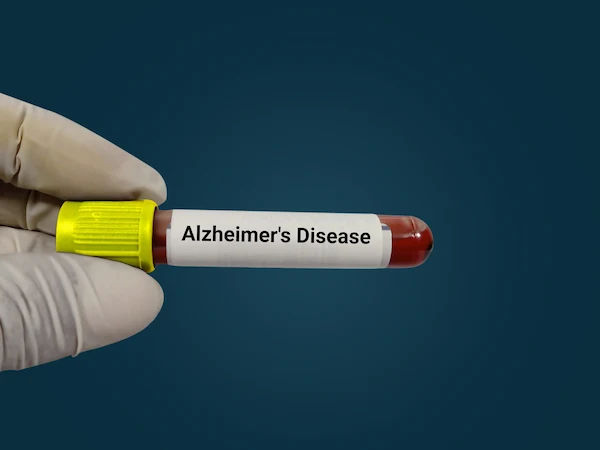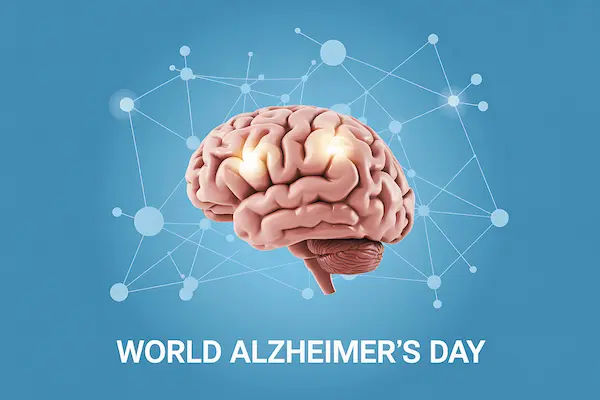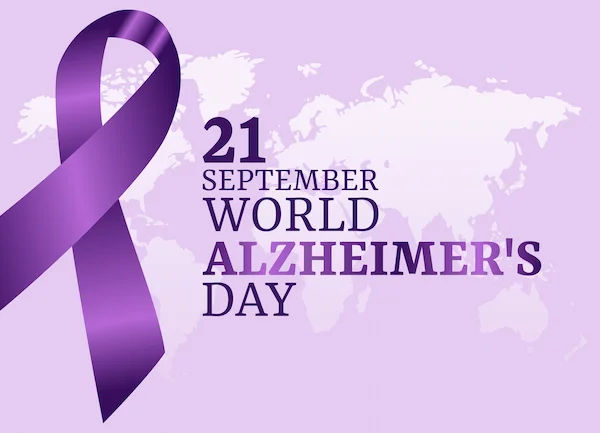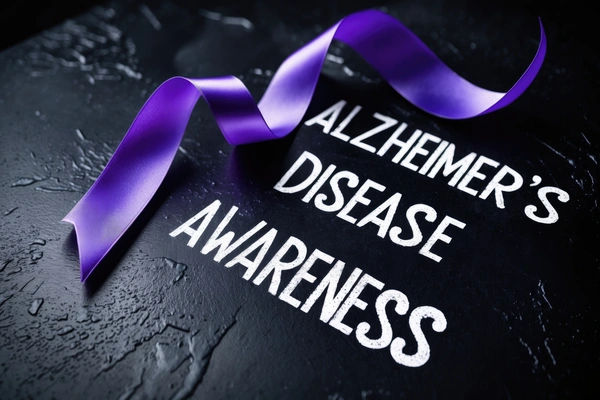Start Alzheimer's Prevention Today Your Action Plan for a Healthier Brain
Start Alzheimer's prevention today with tips on risk factors, brain-healthy diet, exercise, and lifestyle strategies to protect your memory and cognitive health.

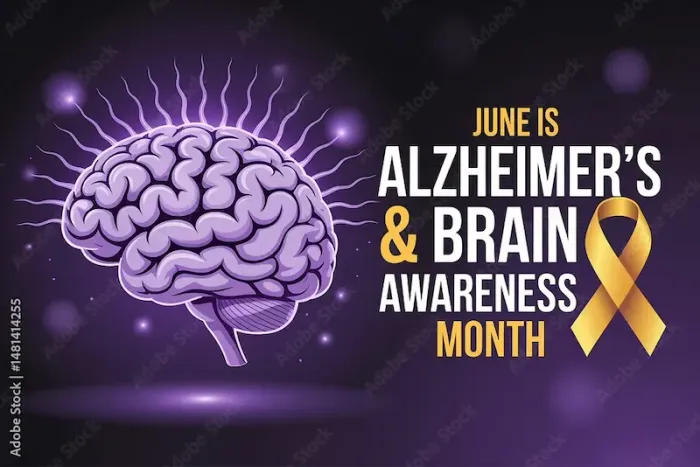
Introduction
The thought of Alzheimer's disease can be daunting. It's a progressive condition that affects memory, thinking, and behaviour, and it's the most common cause of dementia. For many, a family history can make it feel like an inevitable fate. But here's the empowering truth: a growing body of scientific evidence suggests that proactive lifestyle choices can significantly reduce your risk. While there's no guaranteed cure, you have more control than you might think. This article is your comprehensive guide to understanding Alzheimer's and, most importantly, the concrete steps you can start taking today to build a resilient brain for the future. We'll move beyond the fear and focus on actionable preventive measures rooted in the latest research, giving you a clear path to protect your cognitive health.
Understanding Alzheimer's: More Than Just Forgetfulness
Many people confuse typical age-related memory changes, like occasionally misplacing keys, with Alzheimer's disease. Alzheimer's is a specific neurodegenerative disease characterised by physical changes in the brain. Understanding these changes is the first step in learning how to combat them.
What is Alzheimer's Disease?
Alzheimer's disease is not a normal part of aging. It is a progressive disorder that causes brain cells to degenerate and die, leading to a continuous decline in memory, cognitive function, and the ability to perform everyday tasks. It accounts for 60-80% of dementia cases.
The Role of Plaques and Tangles
Two key hallmarks define Alzheimer's pathology:
1. Amyloid Plaques: Dense clusters of a protein fragment called beta-amyloid that build up between nerve cells, disrupting cell communication.
2. Neurofibrillary Tangles: Twisted fibers of a protein called tau that accumulate inside brain cells, blocking the transport of nutrients and essential materials.
These plaques and tangles initially form in areas crucial for memory before spreading to other regions, leading to the symptoms we associate with the disease.
Why Early Prevention is Crucial
Research indicates that these brain changes can begin 20 years or more before symptoms appear. This long "preclinical" phase is a critical window of opportunity. By adopting preventive measures early, you can help build what scientists call "cognitive reserve"—the brain's resilience to pathology. A brain with a strong cognitive reserve can withstand more damage before showing signs of decline.
Consult a Neurologist for the best advice
Know Your Risk: Factors You Can and Cannot Change
When you start thinking about prevention, it's essential to understand your risk profile. Some factors are fixed, but many of the most significant ones are within your power to influence.
Non-Modifiable Risk Factors
Some factors that increase Alzheimer's risk cannot be changed, but knowing them can help with early monitoring and planning:
• Age: The single greatest risk factor. The likelihood of developing Alzheimer's doubles about every five years after age 65.
• Genetics (Family History): Having a parent or sibling with Alzheimer's increases your risk. Specific genes, like APOE-e4, are associated with higher risk, but they do not guarantee you will develop the disease.
Modifiable Risk Factors: The Key to Prevention
This is where your focus should be. These factors are strongly linked to dementia prevention and are largely influenced by lifestyle:
• Heart Health: Hypertension, high cholesterol, and diabetes can damage blood vessels in the brain.
• Physical Inactivity: A sedentary lifestyle is a major risk factor.
• Poor Diet: Diets high in saturated fats, sugar, and processed foods promote inflammation.
• Smoking and Excessive Alcohol: Both can accelerate cognitive decline.
• Social Isolation and Lack of Mental Stimulation.
Your Brain-Healthy Diet: Fuel for Thought
What you eat directly impacts your brain's health. The goal is to reduce inflammation and provide essential nutrients.
The MIND Diet: A Hybrid Approach
The Mediterranean-DASH intervention for neurodegenerative delay (MIND) diet combines elements of the Mediterranean and DASH (dietary approaches to stop hypertension) diets. Studies have found it can reduce the risk of Alzheimer's by up to 53% in participants who adhered to it rigorously.
Key Foods to Embrace and Avoid
• Embrace: Green leafy vegetables (6+ servings/week), other vegetables, berries (2+ servings/week), nuts, olive oil, whole grains, fish (1+ serving/week), beans, and poultry.
• Limit: Red meat, butter and margarine, cheese, pastries and sweets, and fried or fast food.
Unique Insight: Don't just focus on adding "good" foods. The MIND diet's power may lie as much in its specific recommendations to limit harmful foods like cheese and fried food, which are known to promote inflammation and vascular damage, as in its recommendations to eat more berries and greens.
Move Your Body, Boost Your Brain
Regular physical activity is one of the most effective ways to reduce dementia risk.
How Exercise Protects Your Brain Cells
Exercise increases blood flow to the brain, delivering oxygen and nutrients. It also encourages the growth of new neurons and the connections between them (synapses). It has been shown to reduce amyloid plaque levels in animal studies and can help manage other risk factors like hypertension and diabetes.
Recommended Types and Duration
Aim for at least 150 minutes of moderate-intensity aerobic exercise (like brisk walking, swimming, or cycling) per week, along with strength training twice a week. Even simple activities like gardening or taking the stairs can contribute to brain health.
Your 5-Step Plan to Start Alzheimer's Prevention Now
Feeling overwhelmed? Let's simplify. Here is a practical plan to start today.
1. The Next Meal: Incorporate one brain-healthy food. Add a handful of spinach to your smoothie or have a small portion of berries with breakfast.
2. The Daily Walk: Commit to a 20-30 minute brisk walk. It's the simplest and most accessible form of aerobic exercise.
3. Learn Something New: Spend 15 minutes learning a new skill online, like a few words of a new language or how to play a simple song on an instrument.
4. Connect Socially: Call a friend or family member for a 10-minute chat. Make plans for a social outing this week.
5. Prioritise Sleep: Aim for 7-8 hours of quality sleep tonight. Establish a calming bedtime routine.
Remember, consistency is more important than perfection. If your efforts to manage risk factors like diet and exercise don't seem to be improving your overall well-being, or if you have a family history that concerns you, it's wise to consult a doctor online with Apollo24|7 for a personalised risk assessment and guidance.
Conclusion
The journey to prevent Alzheimer's begins with a single step. While we can't change our age or genetics, we have immense power over our lifestyle. By understanding the disease, focusing on modifiable risk factors like heart health through diet and exercise, and actively engaging our brains and social networks, we can build a formidable defence. The goal isn't just to add years to your life, but to add life to your years by preserving your precious memories and cognitive abilities. Don't wait for a sign to start preventive measures today. The best time to plant a tree was 20 years ago; the second-best time is now. Your future brain will thank you for the care you invest in it today.
Consult a Neurologist for the best advice
Consult a Neurologist for the best advice

Dr. Aditendraditya Singh Bhati
Neurosurgeon
21 Years • MBBS(2004), DNB Neurosurgery(2014); MNAMS; Fellow Skull Base Endoscopy (Italy), Fellow Extended Skull Base ( Weill Cornell, USA), Fellow ZAP-X Radiosurgery. Member of American Association of Neurological Surgeons
Delhi
Apollo Hospitals Indraprastha, Delhi
(125+ Patients)

Dr. Ganeshgouda Majigoudra
Neurologist
10 Years • MBBS, MD ( GENERAL MEDICINE) DM (NEUROLOGY)
Bengaluru
Apollo Clinic, JP nagar, Bengaluru

Dr. E Prabhakar Sastry
General Physician/ Internal Medicine Specialist
40 Years • MD(Internal Medicine)
Manikonda Jagir
Apollo Clinic, Manikonda, Manikonda Jagir
(175+ Patients)

Dr. Vemula Sreekanth
Neurologist
18 Years • MD(Med), DM(Neuro)
Hyderabad
Apollo Hospitals Financial District, Hyderabad

Dr Debnath Dwaipayan
Neurosurgeon
9 Years • MBBS, MS(Gen. Surgery), DrNB (Neurosurgery)
Delhi
Apollo Hospitals Indraprastha, Delhi
Consult a Neurologist for the best advice

Dr. Aditendraditya Singh Bhati
Neurosurgeon
21 Years • MBBS(2004), DNB Neurosurgery(2014); MNAMS; Fellow Skull Base Endoscopy (Italy), Fellow Extended Skull Base ( Weill Cornell, USA), Fellow ZAP-X Radiosurgery. Member of American Association of Neurological Surgeons
Delhi
Apollo Hospitals Indraprastha, Delhi
(125+ Patients)

Dr. Ganeshgouda Majigoudra
Neurologist
10 Years • MBBS, MD ( GENERAL MEDICINE) DM (NEUROLOGY)
Bengaluru
Apollo Clinic, JP nagar, Bengaluru

Dr. E Prabhakar Sastry
General Physician/ Internal Medicine Specialist
40 Years • MD(Internal Medicine)
Manikonda Jagir
Apollo Clinic, Manikonda, Manikonda Jagir
(175+ Patients)

Dr. Vemula Sreekanth
Neurologist
18 Years • MD(Med), DM(Neuro)
Hyderabad
Apollo Hospitals Financial District, Hyderabad

Dr Debnath Dwaipayan
Neurosurgeon
9 Years • MBBS, MS(Gen. Surgery), DrNB (Neurosurgery)
Delhi
Apollo Hospitals Indraprastha, Delhi
More articles from Alzheimers Disease
Frequently Asked Questions
1. Can you prevent Alzheimer's if it runs in your family?
While you can't change your genetics, lifestyle factors play a huge role. Adopting a brain-healthy lifestyle may help delay the onset or even reduce the risk of developing symptoms, even for those with a genetic predisposition. It's about stacking the odds in your favor.
2. What are the best brain exercises to prevent Alzheimer's?
The key is 'novelty and complexity.' Instead of just doing crossword puzzles you're good at, try learning a new language, a musical instrument, or a new dance. Activities that require focus, learning, and coordination are most effective at building new neural pathways.
3. Are there specific vitamins or supplements that help?
Overall, it's best to get nutrients from a balanced diet. Some research supports omega-3 fatty acids (from fish), vitamin D, and B vitamins. However, always talk to your doctor before starting any supplement regimen, as high doses can be harmful. Apollo24|7 offers a convenient home collection for tests like vitamin D or HbA1c to check your levels.
4. At what age should I start Alzheimer's prevention?
The sooner, the better. Brain changes can start in mid-life, so building healthy habits in your 40s and 50s is ideal. However, positive changes can benefit the brain at any age.
5. How does managing stress help prevent cognitive decline?
Chronic stress leads to elevated cortisol levels, which can damage the hippocampus—a brain area critical for memory. Practices like meditation, yoga, and mindfulness can help manage stress and protect the brain.
